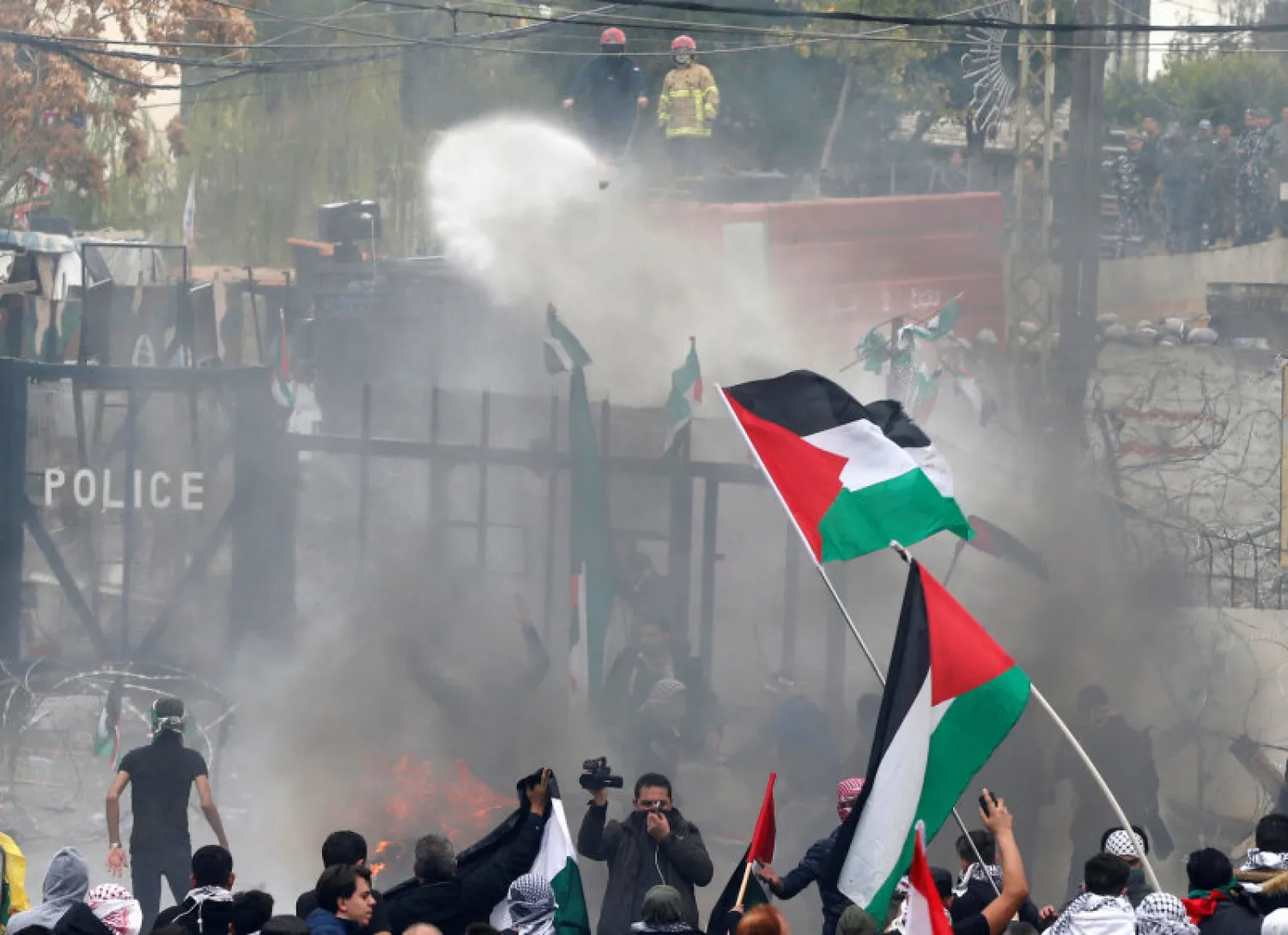Israeli forces shot and killed four Palestinians on Friday as demonstrations continued against US President Donald Trump’s decision to recognize Jerusalem as the capital of Israel.
Some 150 others were wounded as the Israeli troop used live fire to confront the protesters, officials said.
Most of the casualties were on the Gaza Strip border, where thousands of Palestinians gathered to hurl rocks at Israeli soldiers beyond the fortified fence. Medics said two protesters, one of them wheelchair-bound, were killed and 150 wounded.
Gaza Health Ministry spokesman Ashraf al-Kidra said two Palestinians were killed from gunshots to the head. He identified the disabled man as Ibrahim Abu Thraya, 29, who had both legs amputated. He had taken part in several border skirmishes recently, images on social media show him carrying a Palestinian flag. He was a regular at such demonstrations. In media interviews, he said he had lost both his legs in a 2008 Israeli missile strike in Gaza.
An Israeli military spokeswoman had no immediate comment on Abu Thraya.
Another 82 Palestinians were injured in clashes in several locations along Gaza's border with Israel, at least five of whom were seriously wounded, Kidra said.
In the occupied West Bank, another area where Palestinians are seeking statehood along with adjacent East Jerusalem, medics said two protesters were killed and 10 wounded by Israeli gunfire.
Palestinians -- and the wider Arab and Muslim world -- were incensed at Trump’s December 6 announcement, which reversed decades of US policy reticence on Jerusalem, a city where both Israel and the Palestinians want sovereignty.
Washington’s European allies and Russia have also voiced worries about Trump’s decision.
Gaza’s dominant Hamas movement, which reject coexistence with Israel, called last week for a new Palestinian uprising, but any such mass-mobilization has yet to be seen in the West Bank or East Jerusalem.
There have been almost nightly Gazan rocket launches into Israel, so far without casualties. Israel has responded with air strikes on Hamas facilities, one of which killed two gunmen.
The Israel military said thousands of "Palestinian rioters" rolled burning tires and hurled firebombs and rocks at security forces, who responded with tear gas and also "fired selectively toward main instigators."
The clashes were fiercer in the West Bank where about 13 protesters were injured by live fire and 61 by rubber bullets while dozens more were treated for tear gas inhalation, according to the Red Crescent.
In east Jerusalem, protesters waved Palestinian flags and chanted "Jerusalem is Arab" as they walked the narrow streets of the Old City. Some threw bottles of water at police.
In the city of Nablus, some Palestinians used slingshots to hurl rocks at Israeli security forces while others torched tires to use the thick plumes of smoke as cover. Others, masked, threw firebombs at an armored water cannon used to disperse crowds.
East Jerusalem is home to sensitive Jewish, Muslim and Christian holy sites and the fate of the territory is an emotionally charged issue at the heart of the conflict. The Palestinians seek east Jerusalem, captured by Israel in the 1967 Mideast war from Jordan, as the capital of their hoped-for state. Israel says the entire city, including east Jerusalem, is its eternal capital. Its annexation is not recognized internationally.
Palestinians hope that part of the city will be the capital of a future independent state and Palestinian leaders say Trump’s move is a serious blow to a moribund peace process.









